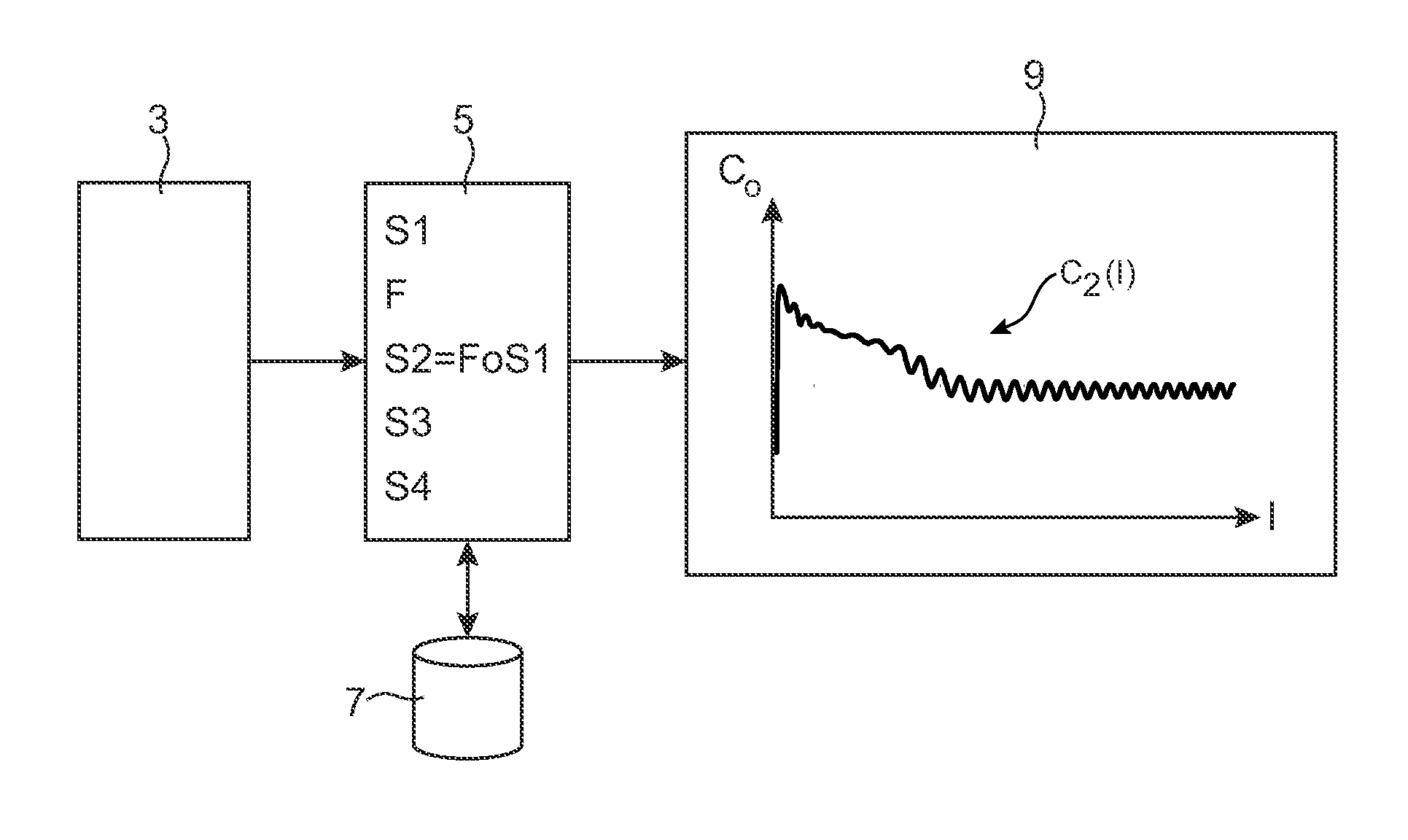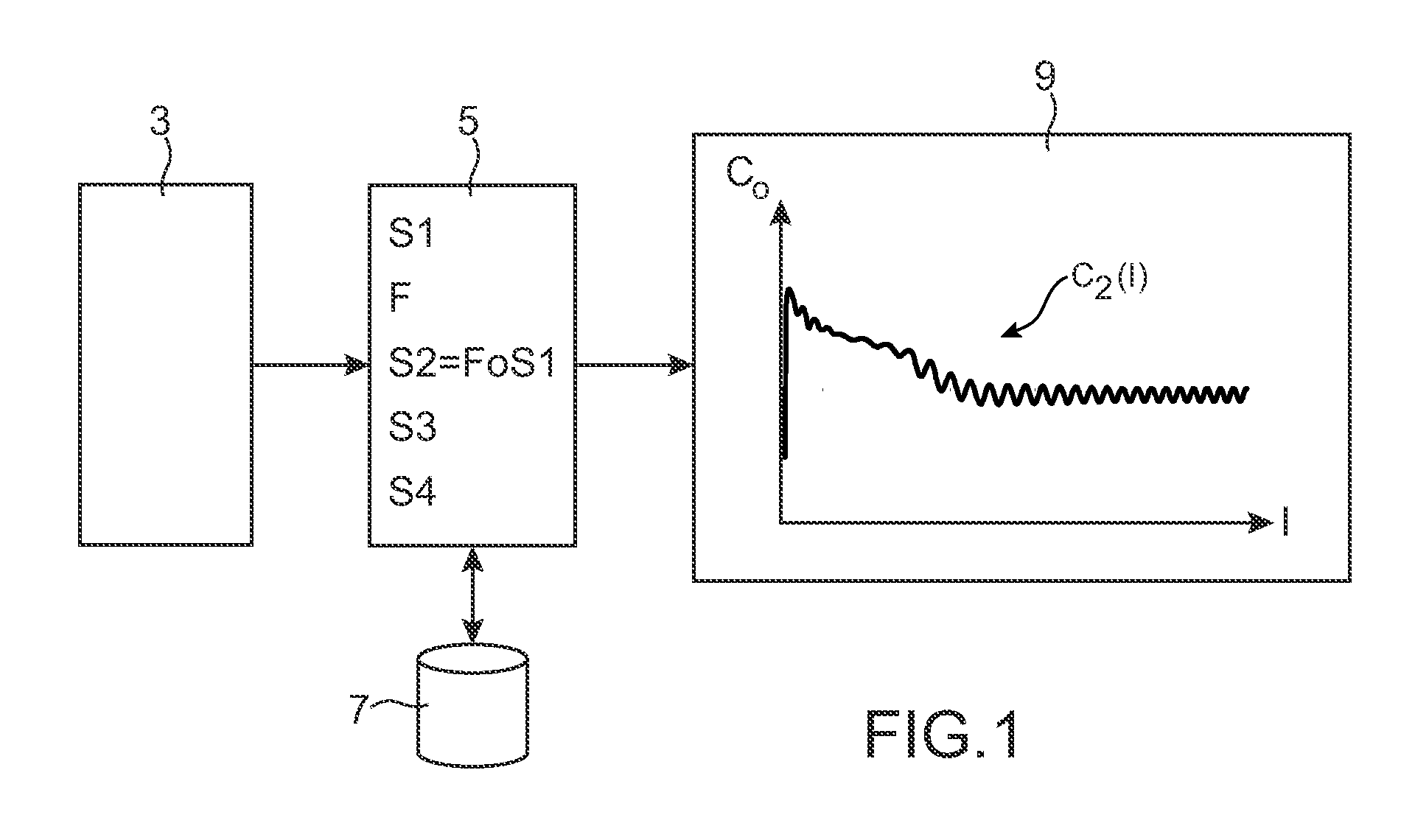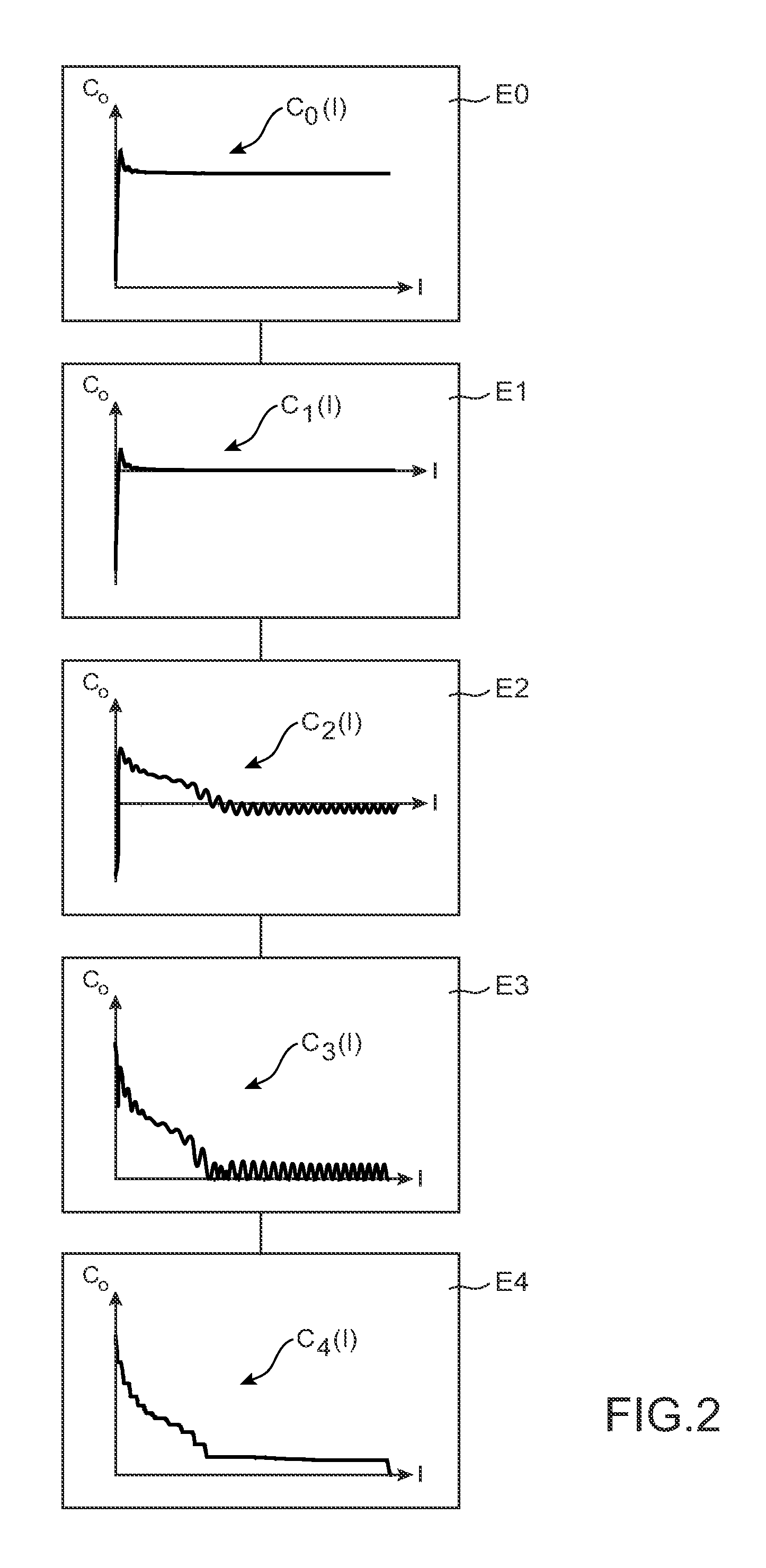Simulation method for determining aerodynamic coefficients of an aircraft
a technology of aerodynamic coefficients and simulation methods, applied in the field of aerodynamics, can solve the problems of difficult precise analysis of simulation convergence, large calculation workload, manual work to use plotting software, etc., and achieve the effect of facilitating the evaluation of the convergence of aerodynamic coefficients
- Summary
- Abstract
- Description
- Claims
- Application Information
AI Technical Summary
Benefits of technology
Problems solved by technology
Method used
Image
Examples
first embodiment
[0087]FIG. 2 shows the various steps in a simulation method according to the invention.
[0088]According to this example, a first finite series of values of the coefficient is available in the form of a table giving the value of the aerodynamic coefficient for each number of iterations, this number varying between 1 and a total number of iterations for example equal to 11 000. In the remainder of this document, the aerodynamic coefficient will be denoted C0, the current number of iterations will be denoted I and the total number of iterations will be denoted Imax.
[0089]FIGS. 3A to 3E show plots for the different steps of the method in FIG. 2.
[0090]Step E0 consists of plotting a preliminary variation curve C0(I) representative of the first series S1 of values of the aerodynamic coefficient as a function of the number of iterations I, as shown in the example in FIG. 3A.
[0091]The abscissa of the plot of the curve C0(I) is the number of iterations I and its ordinate is the aerodynamic coe...
second embodiment
[0142]FIG. 4 shows the different steps in a simulation method according to the invention.
[0143]As above, there is a first finite series S1 of values of the aerodynamic coefficient C0 in step E20 in the form of a table containing the value of the coefficient for a number of iterations I varying between 1 and a total number of iterations Imax.
[0144]Thus, there is also the plot of the preliminary variation curve C0(I) representative of the first series of values of the aerodynamic coefficient as a function of the number of iterations, as shown in FIG. 3A.
[0145]This second embodiment is different from the first, particularly in that the translation of the curve C0(I) is implicitly integrated into the locally expanding transformation.
[0146]Step E22 consists of applying a mixed linear-logarithmic transformation onto function C0(I).
[0147]To achieve this, the processing means 5 start by calculating a final value C0final=C0(Imax), a maximum value C0max=max(C0(I)), and a minimum value C0min=m...
PUM
 Login to View More
Login to View More Abstract
Description
Claims
Application Information
 Login to View More
Login to View More - R&D
- Intellectual Property
- Life Sciences
- Materials
- Tech Scout
- Unparalleled Data Quality
- Higher Quality Content
- 60% Fewer Hallucinations
Browse by: Latest US Patents, China's latest patents, Technical Efficacy Thesaurus, Application Domain, Technology Topic, Popular Technical Reports.
© 2025 PatSnap. All rights reserved.Legal|Privacy policy|Modern Slavery Act Transparency Statement|Sitemap|About US| Contact US: help@patsnap.com



